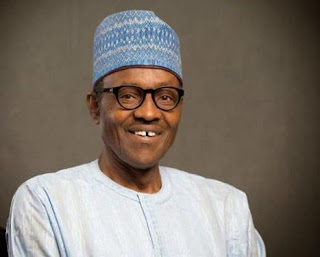Federal Cabinet: The Technocrat/Politician Faceoff And The Role Of The Constitution By Gbolahan Yusuf
As the sun rises and sets every other day in this month, the average political observer in the country right now takes note of how many days September has to elapse, seeing as President Buhari has assured that by the time September passes, the names of his cabinet members will be public knowledge. The level of anticipation attached to this ministerial list is one that has never been matched by any previous government in the land and this anxiety is simply borne out of the anxiety by the people to see the change they voted manifest in the choice of ministers. How does change come in the form of a list?
In the sixteen years that the PDP governed the country, ministerial appointments often served for political compensations, in what was a blatant abuse of administrative powers. Governors were saddled with the responsibility of nominating ministers from their state and often-times it was the loser in the party primaries, the son or daughter of the party godfather, or another loyalist of the governor/godfather, that got the nod. Many calls were made as to the point that ministerial positions were not political, and quite aptly were to have technocrats or experts manning the several portfolios rather than politicians. The previous administration however had many experts in its cabinet, but still had enough room to accommodate failed gubernatorial aspirants (one in particular resigned to contest for governor, lost primaries and got re-nominated for minister). When the cabinet list of President Muhammadu Buhari is made public, it is expected that PDP elements will again wail at the presence of politicians on the list rather than technocrats, as it was often criticized for in its sixteen years, but is there really a way out of this maze? Can the President really have a cabinet devoid of politicians?
When President Muhammadu Buhari said that “ministers are noisemakers, civil servants do the job”, he might have been wrong but in some cases, the assertion is correct. Afterall, the ministry is more important than the minister. One could conclude however, that with the President saying that ministers are noisemakers and with the delay in picking a cabinet, he has accepted that politicians will make up ministers, even if the always-cautious president is not too comfortable with the idea. The government at the center now is an APC government, ruling with the APC manifesto as drawn up by the party. To expect the government to work without such party members is an empty wish. The misconception has always been that a politician cannot be a technocrat. A quick look at the ruling party, and the caliber and background of contestants it has often put forward(the current Vice President is latest example) quite rubbishes that idea, which was inspired by the PDP who in all honesty, lacked such brilliance, or if they didn’t, rarely pushed them forward. It is also a constitutional requirement that every state in the country produces one minister, and this also plays a part in why politicians will never be excluded from ministerial lists. How does this constitutional requirement play a part?
Let us give it a try. Say we have 40 portfolios to fill, and we do not want any politician. The assignment gets quite tedious, maybe too tedious. We need to find an expert for every portfolio and this search will be easy; we are short of many things but great minds definitely will not be one. Where it gets tough is when the states of origin of the 40 nominees are drawn up and about 15 states are not represented while some states are over represented. What happens next is cancelling of some experts’ names because other experts share the same state to create room for other states from where, experts are maybe not known or the experts known have their field occupied by better candidates from another state. The web becomes so confusing in trying to pick experts while trying at the same time to be equal with the states to meet the constitutional requirement. You will never solve the conundrum perfectly. Therefore, the result is a mixture of political and technocratic members into the cabinet. How does this rub off on governance?
President Buhari in delaying the appointment of ministers has been able to put the incoming ministers in a tight corner seeing as he now has a firm understanding of the state of their ministries before they resume and it should lead to increased transparency and accountability on their part and ultimately, this is all that matters. The last administration witnessed a near assassination of our petroleum industry under a petroleum minister who had spent all of her career in the petroleum industry and there are many other examples. In essence, being a good technocrat does not guarantee being a good minister, neither does being a good politician. What does is the level of transparency and accountability brought to bear by the ministers. I think I’d make a good minister, because I’d work with experts anyway, and I will be transparent and abhor corruption in the system, that way I will be doing a lot more than those who looted the country dry. But what do I know? I am neither a politician nor a technocrat.
Gbolahan Yusuf


Comments
Post a Comment